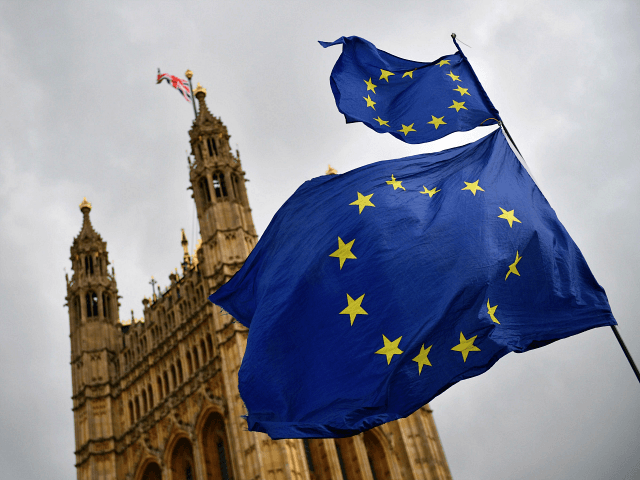The House of Lords and the Queen have signed off on the Cooper Bill which will force Prime Minister Theresa May to seek a Brexit delay and stops the UK leaving the EU in a clean break.
After the House of Commons forced through three readings, a committee and a reporting stage in one day to pass the Cooper-Letwin Bill by a single vote last week, Parliament’s upper house, the House of Lords, gave its unopposed third reading Monday night.
The bill, put forward by Labour’s Yvette Cooper and Tory Remainer Sir Oliver Letwin, was then handed it back to the Commons to debate Lords amendments at around 8pm, with the Commons passing the bill just before 11pm, accepting the final House of Lords amendment by 390 votes to 81 – a majority of 309, according to The Guardian.
Any hopes that Queen Elizabeth II would block the legislation aimed at frustrating and blocking the June 2016 Brexit decision were dashed when barely a quarter of an hour later, the bill received Royal Assent — where the Monarch agrees to make a bill an Act of Parliament.
The House of Commons explained that “while the Monarch has the right to refuse Royal Assent, nowadays this has not happened since 1707, and Royal Assent today is considered a formality.”
May is on the way to Europe to beg a further extension of Article 50 to June 30th to allow talks to continue with the Opposition Labour Party as a last-ditch attempt to find a way to pass her controversial Withdrawal Agreement which has already been voted down three times.
However, the Cooper Act now means that the prime minister is required to present her extension plan as an amendable motion — meaning Parliament can change the motion — to the House of Commons for debate and approval this afternoon, and stopping what Ms Cooper called an “inadvertent no-deal” exit.
All extensions, however, still requires unanimous support from the EU27, with France and Germany indicating that a price must be paid in exchange for another Brexit delay.
Ahead of the European Council meeting Wednesday, Germany has said a request of extension to June 30th “must be linked to very strict criteria,” while insisting the UK must still take part in May’s European Parliament elections.
While the Cooper Act represents a challenge to the prime minister’s authority with the Government now no longer having sole control of the Parliamentary agenda, Mrs May has already been accused of “subcontracting” Brexit to Opposition leader Jeremy Corbyn and his Labour Party by offering to sit down with the socialist to come up with a Brexit plan that would win support from leftist MPs.
Cross-party talks began last week, resumed Monday, and are set to continue today between May’s de facto deputy, Cabinet Office Minister David Lidington, and Labour’s shadow Brexit secretary Sir Keir Starmer.
So far, Corbyn has complained that his shadow cabinet “expressed frustration that the Prime Minister has not yet moved off her red lines so we can reach a compromise,” insisting that Labour wants an agreement on regulatory alignment with the EU — a customs union — which will kill the UK’s ability to make free trade agreements with third countries like the United States and alignment with the Single Market which would entail unlimited, uncontrolled migration from the EU.
“The key issues that we must see real movement on to secure an agreement are a customs union with the EU, alignment with the single market and full dynamic alignment of workers’ rights, environmental protections and consumer standards,” Corbyn said according to the Evening Standard.

COMMENTS
Please let us know if you're having issues with commenting.